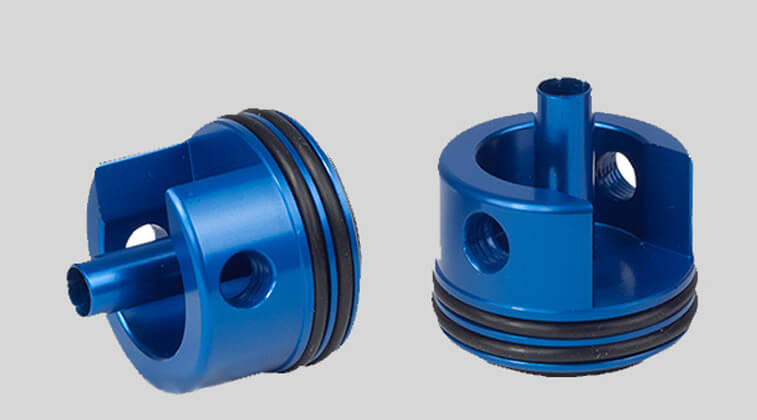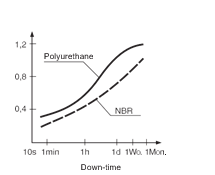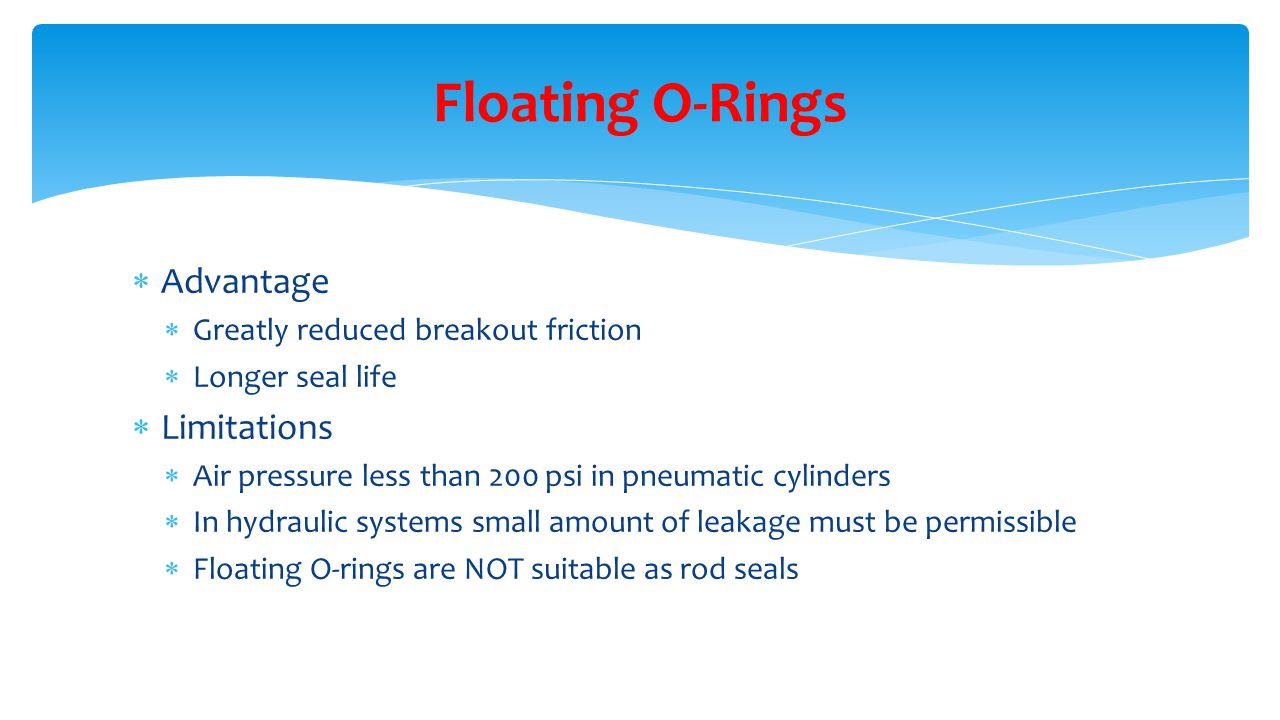O Ring Breakout Friction

Running friction is lower than breakout friction.
O ring breakout friction. This is often called breakout friction or its breakout point. The o ring may be used in static applications or in dynamic applications where there is relative motion between. The softer the elastomer the more risk that at high operating pressure the elastomer of the o ring will extrude into the. In continuously moving applications excessive o ring running friction can cause heat to build up within the o ring material itself.
O rings tend not to roll in normal operation because fluid pressure forces a larger area of the o ring against the gland than against the shaft. It is a loop of elastomer with a round cross section designed to be seated in a groove and compressed during assembly between two or more parts creating a seal at the interface. Breakout friction is the force necessary to start relative motion. Because static friction is opposing the force you are applying to the o ring.
Although a harder compound will in general have a lower coefficient of friction than a softer material the actual running and breakout friction values are actually higher because the compressive load required to achieve the proper squeeze and force the harder material into a given o ring cavity is so much greater. The frictional force is stronger than the force you are applying to the o ring preventing it from sliding. Limiting friction is the friction acting on an object just before it begins to move. To minimize or reduce wear the.
It also depends on the. This is depen dent upon the length of the time between cycles. This pressure can tear portions of the seal that adhered to the gland wall causing seal failure. 3 o ring basics seal thinking.
Effects of breakout friction can cause excessively high pressures to develop. Hardness of the rubber type of surface surface finish squeeze on the o ring amount and type of lubrication fluid pressure temperature the amount of break out friction that a system will generate depends on the length of time the surfaces of the metal and the seal element have been in physical contact at rest. Because rubber is a poor conductor of heat the o ring can loose its proper ties. The torsional resistance of the o ring also resists twisting.
The parker o ring handbook is a hardcover manual. The o ring causing friction and heat. Break out friction in addition to the usual causes of friction such as the hardness of the rubber the type of surface the surface finish the squeeze on the o ring the amount and type of iubrication and the fluid pressure and temperature the amount of break out friction which an o ring will develop depends. The compound the material as we discussed in other sessions what are the differences in o ring materials themselves.










































